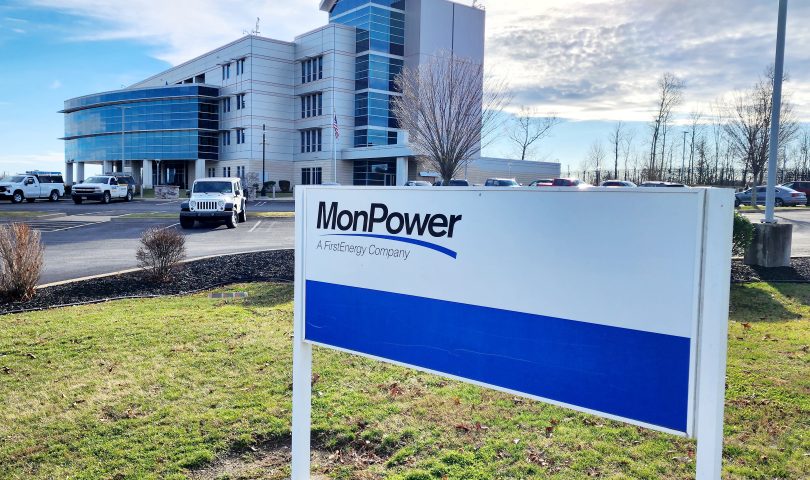MORGANTOWN – The state Public Service Commission has issued an order in a Mon Power/Potomac Edison rate-hike case that included requests from other parties to strike nearly all of the proposed hike and to simplify a net metering proposal split across two separate rate cases.
The PSC issued its order Friday in the FirstEnergy sisters’ ENEC – expended net energy cost – filing.
They are asking for $167,465,330, which they project would add $9.19 to the average monthly residential bill, raising it from $120.20 to $129.39 – a 7.8% hike. ENEC cases are designed to allow utilities to cover their costs of producing power.
On the first matter, Longview Power asked the PSC to dismiss $144,805,585, saying the FirstEnergy companies have not prudently managed their costs or complied with PSC directives. They asked the PSC to dismiss these costs with prejudice, meaning the companies could never again seek to recoup them.
That would leave the companies a hike of just $22,659,745 in this case.
Longview said the portion they want dismissed – the nearly $145 million – is under-recovery for the period of July 1, 2021, through June 30, 2022. The period in question – Fiscal Year 2002 – was a period of rising energy prices and the companies should have been operating their power plants at high capacity and selling the power into the PJM regional energy grid, which would have reduced their ENEC costs and saved ratepayers money.
The sister companies offer several reasons why the PSC should deny Longview’s motion to dismiss the $145 million. One, Longview was a party in last year’s ENEC case and essentially agreed the costs were prudent and reasonable by agreeing to a settlement in that case.
Two, the PSC and all the parties from that case, including Longview and the West Virginia Energy Users Group – which supported Longview’s proposal in a filing earlier this week – have all of the evidence from that case to review the costs and retain the right to raise issues about those costs in this proceeding.
Three, the companies haven’t ignored or disregarded any PSC orders: the PSC didn’t order them to re-file last year’s evidence in this year’s case, or submit further evidence about that case.
In its Friday order, the PSC denied Longview’s motion to dismiss, saying it intends to review the prudency of the costs in the present ENEC through administrative notice of all testimony in the previous case as well as any testimony filed in the present case.
Net metering
In the net metering matter, Mon Power and Potomac Edison have proposed to change the way they credit home solar power customers who contract for net metering.
Net-metering customers generate all or a portion of their own power, typically through solar, and receive credits on their bill for any power they generate in excess of what they use.
Currently, the companies provide a full 1-to-1 credit, meaning energy given to the utility is worth the same as energy bought from the utility. The current residential base rate is about 11.4 cents per kilowatt hour (kWh), and could go up to about 13 cents as the companies’ several rate cases reach their respective conclusions.
The companies propose to change that to base the credits on the wholesale rate for electricity, which the filings calculate at 6.6 cents per kWh – roughly half of the 13 cents per kWh.
The proposal has garnered significant public opposition – 744 letters to date.
It has also generated some confusion because the proposal is included in two separate rate cases: this ENEC case and a general rate case that includes customer charges for infrastructure and for their energy assistance program.
West Virginia Citizen Action Group, Solar United Neighbors and Energy Efficient West Virginia filed a motion with the PSC to strike the net-metering discussion from the ENEC, which they say is the wrong venue to consider the proposal.
The companies created the problem, they say, by initiating the discussion of moving to a wholesale-based credit in the general rate case but then defining that rate in this ENEC case.
The PSC on Friday agreed with the three groups, saying striking the net-metering language form this case will pose no undue burden on the companies. It also noted that its net-metering rules require that a net-metering credit that is different from the energy rate in a base rate case must be considered in a base rate case. So, the net-metering discussion will be conducted in the base rate case, which would raise the cost for the average residential customer by $18.07 per month.
Procedural schedule
Finally, the PSC also established a procedural schedule. Among the items, directed testimony by all parties other than the companies will be received on Nov. 13; discovery must be completed by Nov. 21; all rebuttal testimony will be received on Nov. 22; an evidentiary hearing will be Nov. 30.
Email: dbeard@dominionpost.com




